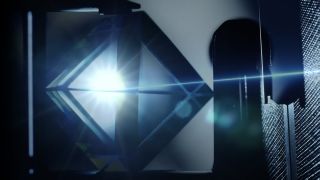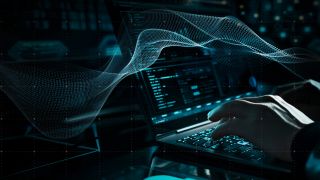Munich dic 21, 2022

In research on future-proof cryptographic methods, the dtec.bw-funded MuQuaNet (Munich Quantum Network) project at the University of the German Armed Forces in Munich has reached an important milestone toward highly secure quantum-resistant networks with a newly developed key management system for integrating QKD keys into the R&S®SITLine network encryptors.
Munich, December 21, 2022 – In the age of quantum computers, it is necessary to develop future-proof cryptographic methods. Quantum Key Distribution (QKD) is a method that uses physical properties of quantum mechanics to provide two or more participants with a common and physically secure key for communication. Researchers are working at full speed on this: in the MuQuaNet (Munich Quantum Network) project, the University of the Federal Armed Forces in Munich is working together with IT security expert Rohde & Schwarz Cybersecurity, among others, to develop, build and operate a quantum-secure communications network for research and evaluation and to make it available to other research institutions and authorities.
As part of the project, an important milestone toward highly secure quantum-resistant networks has now been reached: the key management system newly developed by Rohde & Schwarz Cybersecurity for integrating QKD keys into the R&S SITLine network encryptors has been successfully tested.
The network encryptors of the R&S SITLine product family protect governmental and commercial customers against espionage and manipulation of data transmitted via Ethernet over fixed lines, radio links or satellites. They meet the diverse requirements of government institutions, companies and KRITIS and are approved for securing classified data by the German Federal Office for Information Security (BSI). All network encryptors from Rohde & Schwarz Cybersecurity are based on 30 years of crypto expertise and are "Security Made in Germany".
MuQuaNet is a research project funded by the dtec.bw. The dtec.bw - Center for Digitalization and Technology Research of the German Armed Forces is a scientific center jointly supported by the Universities of the German Armed Forces in Munich and Hamburg and is part of the German government's economic stimulus program to overcome the COVID-19 crisis. Various partners from research and industry are involved in the project. The University of the Federal Armed Forces Munich is responsible for the project management.
Press & media contact
Uwe GreunkeResponsible for Marketing, Division Networks & Cybersecurity
uwe.greunke@rohde-schwarz.com
Rohde & Schwarz
Rohde & Schwarz is striving for a safer and connected world with its Test & Measurement, Technology Systems and Networks & Cybersecurity Divisions. For over 90 years, the global technology group has pushed technical boundaries with developments in cutting-edge technologies. The company's leading-edge products and solutions empower industrial, regulatory and government customers to attain technological and digital sovereignty. The privately owned, Munich based company can act independently, long-term and sustainably. Rohde & Schwarz generated net revenue of EUR 3.16 billion in the 2024/2025 fiscal year (July to June). On June 30, 2025, Rohde & Schwarz had more than 15,000 employees worldwide.
R&S® is a registered trademark of Rohde & Schwarz GmbH & Co. KG.
Networks & Cybersecurity
With its subsidiaries LANCOM Systems, Rohde & Schwarz Cybersecurity, and Rohde & Schwarz SIT, the group has bundled its expertise in one division. Know-how that is needed to become the largest provider of network and cybersecurity technology for companies, public authorities, and organizations in Europe.






